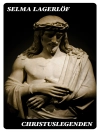In ‘Water Baptism, ‘ James H. Moon delves into the intricate theological and historical significance of the rite of baptism, exploring its transformations from a Jewish tradition to a cornerstone of Christian practice. The book is marked by a scholarly yet accessible literary style, interweaving scriptural analysis with historical context, providing readers with a comprehensive understanding of baptism’s role within various denominations. Moon meticulously examines the practice’s sociocultural impacts over centuries, offering insights into how water baptism shapes community identity and personal faith in a contemporary setting. James H. Moon, an esteemed theologian with a rich academic background in religious studies, draws from his extensive research and personal experiences within diverse Christian communities. His journey toward this publication has been influenced by his role as a pastor and educator. Moon’s commitment to understanding the dynamic interplay between faith practices and modern life illuminates the motivations behind this astute examination of baptism, enriching both his narrative and analytical approach. ‘Water Baptism’ is highly recommended for theologians, students of religious studies, and church leaders alike. Its thoughtful exploration of baptism encourages both intellectual reflection and spiritual renewal, making it a vital addition to any library focusing on Christian rites and practices.
Circa l’autore
James H. Moon stands as a noteworthy contributor to the field of religious studies, particularly focusing on the Christian sacrament of water baptism. While maintaining a profile that eludes broad public recognition, Moon has securely positioned himself within the academic and theological communities through his seminal work, ‘Water Baptism’. In this text, Moon explores the historical, doctrinal, and practical aspects of baptism, providing readers with a comprehensive understanding of the subject. His literary style is characterized by meticulous research and a clear, accessible mode of articulation that invites both scholars and laypeople into a deeper examination of the topic. The precision of his arguments and his balanced approach to scriptural interpretation are indicative of his commitment to intellectual rigor and spiritual inquiry. Although his oeuvre may not be extensive, the quality of Moon’s scholarship has left an indelible mark on the study of Christian rituals and continues to serve as a valuable resource for those seeking to grasp the complexities and significance of water baptism within the Christian faith.












